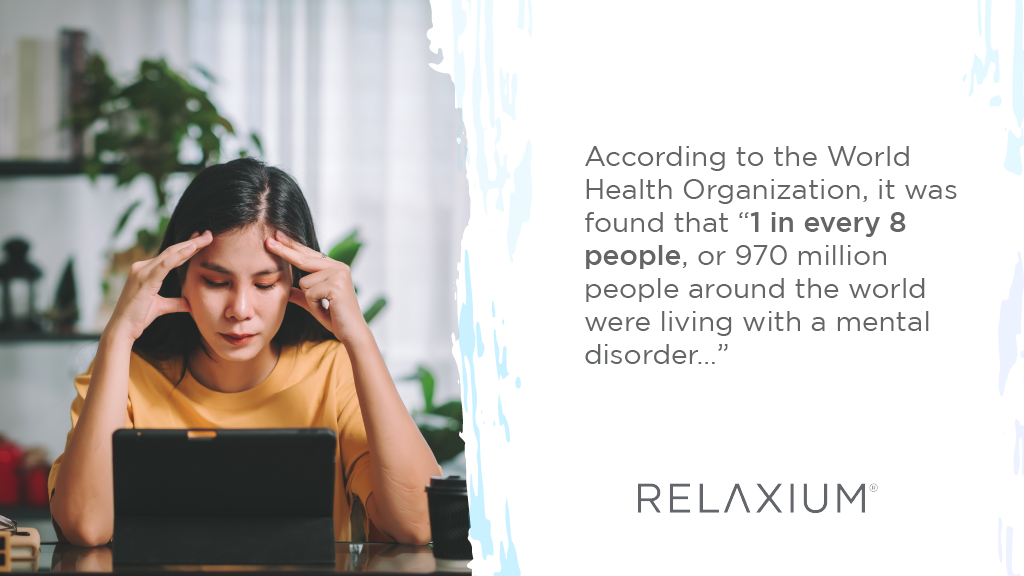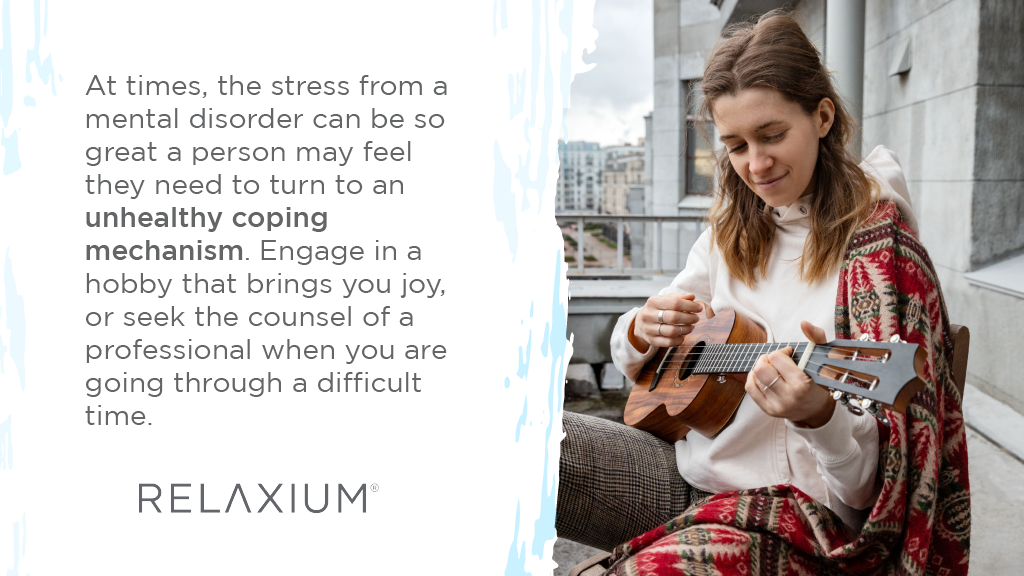Join us as we recap Mental Health Awareness Month, reflecting on its impact and inspiring the transition from awareness to action.
Mental health consists of our emotional, psychological, and social well-being. It goes deeper than physical pain, especially being that it is not as curable as most physical pains. In fact, millions around the world struggle with mental health.
Mental disorders are more common than a person may think. Taking from information found by the World Health Organization, in 2019 it was found that “1 in every 8 people, or 970 million people around the world were living with a mental disorder…” That number continued to rise when the pandemic hit, with about a “26% and 28% increase respectively for anxiety and major depressive disorders in just one year.
With numbers like these, information and awareness must continue to be spread. Understanding mental disorders and the symptoms that go along with them can help others recognize them as soon as possible.
So what are the most common mental disorders?
- Anxiety disorders: Anxiety disorders are mental health conditions where a person will have excessive or persistent feelings of worry, uneasiness, or fear. These feelings can be a major disruption to a person’s life. There are a number of types of anxiety which include generalized anxiety disorder, panic disorder, phobias, and social anxiety disorder.
- Depressive disorders: Depressive disorders are characterized by consistent feelings of sadness, loss of interest or pleasure in activities. This form of mental disorder affects a person’s life significantly. Forms of depressive disorders include clinical depression, persistent depressive disorder, and postpartum depression.
- Attention-Deficit/Hyperactivity Disorder (ADHD): This mental disorder is characterized by a pattern of hyperactivity, impulsivity, and inattention a person will have during daily life.
- Bipolar Disorders: This mental disorder involves a cycle of extreme mood swings. These can include feelings of depression and can even extend to periods of mania. There are a couple of different types of bipolar disorder which include: Bipolar I Disorder, bipolar II disorder, and cyclothymic disorder.
- Obsessive-Compulsive Disorder (OCD): This mental disorder is when a person will have intrusive thoughts which can turn into obsessions. These obsessions are then repeated due to a person’s personal need to complete them.
- Post-Traumatic Stress Disorder (PTSD): PTSD is a form of anxiety disorder where a person struggles to live their daily lives due to exposure to a previous traumatic event. Flashbacks, nightmares, and severe anxiety are all components of PTSD.
- Eating disorders: Eating disorders are mental disorders in which a person will have unhealthy behaviors or attitudes towards food, body image, and weight. Forms of eating disorders include anorexia nervosa, bulimia nervosa, and binge eating.
If you or someone you know may be facing a disorder like this it is important to consult a health professional for a formal diagnosis. Self-diagnosis can be detrimental to your health.

How can I improve my mental health?
Though you should absolutely consult with a professional, there are ways to better your mental health without medication. This varies, of course, none of these methods can “cure” a mental disorder per se, but they can help you to manage feelings in moments of vulnerability.
- Prioritizing self-care
- Engaging in social support
- Creating healthy coping mechanisms
- Engaging in activities you enjoy
- Establishing boundaries
Prioritizing self-care
Something a lot of us take for granted is ourselves. When dealing with mental disorders, feelings can be so overwhelming that we forget to take care of ourselves.
This is something you must be aware of. So how can you prioritize self-care? Well, try to listen to your body. Examples of self-care include showering each day, getting enough sleep, and eating a healthy diet. Completing activities such as these can help to provide the energy you need to get through the day.
Meditation, breathing exercises, and even yoga are fantastic forms of self-care.
Engaging in social support
Humans need connection. Social support can be everything for a person suffering from a mental disorder. Be sure to be around people who are open-minded and refrain from judgment simply because they don’t understand what you are going through.
This can be very beneficial as well if you are supported by people who are going through what you are. A community can make all the difference to help a person from feeling alone.
Creating healthy coping mechanisms
For many with mental disorders, distractions, and unhealthy coping mechanisms can be prominent. At times, the stress from a mental disorder can be so great a person may feel they need to turn to an unhealthy coping mechanism. This is what you want to avoid.
Instead, create healthy coping mechanisms that can help in a positive way. Engage in a hobby that brings you joy, or seek the counsel of a professional when you are going through a difficult time.

Engaging in activities you enjoy
Participating in activities you enjoy can help not only get your mind off of difficult thoughts, but it can remind you of happiness. For so many, happiness is a feeling not often felt when dealing with a mental disorder.
Consider what activities bring you joy or inspiration. Do these to remind yourself that good things still exist in the world.
Establishing boundaries
Establishing boundaries is very important when dealing with a mental disorder. Pressure to do activities you don’t enjoy or being around those who do not care for your health can be detrimental to your health.
To avoid this, set healthy boundaries in your relationships. Do not be afraid to prioritize yourself. You have the power to say no.

You are not alone
We hope that this has been a resource to remind you that mental health is prominent in society and it does matter. Seek help if you continue to run into walls. Remember, you do not have to go about this alone.
To restful and healthy days ahead.
The Relaxium Team
*These statements have not been evaluated by the Food & Drug Administration. This product is not intended to diagnose, treat, cure, or prevent any disease.
Sources:
https://www.mayoclinic.org/diseases-conditions/depression/symptoms-causes/syc-20356007
https://www.mayoclinic.org/diseases-conditions/bipolar-disorder/symptoms-causes/syc-20355955
https://www.nimh.nih.gov/health/topics/eating-disorders
https://www.nimh.nih.gov/health/topics/caring-for-your-mental-health

